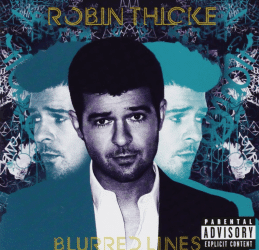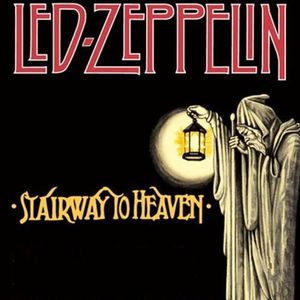Burying Blurred Lines
Finally...

In March 2015, a jury handed down a $7.4 million judgment against Robin Thicke, Pharrell Williams and others involved with the song Blurred Lines. Though that amount later was reduced to $5.3 million, the verdict survived an appeal and the case became a done deal.
It was one of the biggest mainstream copyright stories of the past decade and it sent shockwaves through the songwriting community with many wondering which of their songs were now suddenly infringements.
However, now the tide has turned. Led Zeppelin emerged victorious in their case against the band Spirit (after the Ninth Circuit took up the case en banc) and that decision was used to overturn an equally controversial judgment against Katy Perry over Dark Horse. This has led many in the media to say the time for Blurred Lines is now up and that copyright law is starting to make sense again.
While all of that sounds well and good, it misses an important point: The Blurred Lines case was never important to start with.
The case was always heavily dependent upon the facts specific to it (not to mention the courtroom failings of Robin Thicke) and its impact on broader copyright was always going to be limited. Even when the case was fresh, there were significantly more important cases going on. The only reason Blurred Lines mattered was that people were convinced it mattered.
Sure, perception often creates its own reality, but this was never a case that was going to have a lasting impact and maybe now we can all realize that.
Blurred Lines and Blurred Times

As we discussed back in August 2019, all of the cases mentioned above dealt almost entirely with issues of fact, not issues of law. Since issues of fact change from case to case, the rulings weren’t likely going to have any major impact on future cases, at least not directly.
In fact, of the three cases mentioned above, the one that actually had the most significant impact on the law was the Led Zeppelin case. There, the Ninth Circuit Court of Appeals used the case to throw out the controversial “inverse ratio rule.” The rule made it so that the more familiar or more access a defendant had to a work, the lower the threshold for similarity became.
This made it so that works for which the defendant had high levels of access or familiarity required much less similarity to be considered an infringement. This was often criticized as access and similarity are not so neatly linked in the real world.
That is a potentially important change in legal thinking that may well have significant impacts on future copyright cases, especially in the Ninth Circuit.
However, there was no such shift in Blurred Lines. Ultimately, the Blurred Lines case was nothing more than the Gaye estate and their lawyers convincing a judge and a jury that the two works were similar enough for Blurred Lines to be an infringement.
If we stop thinking about the Blurred Lines case as a major shift in copyright law, it becomes what it actually is: An outlier.
Remove Blurred Lines from the equation and the other cases fit more in line with how copyright has been handled, shifting the law in slower and more predictable ways. Yes, the Dark Horse ruling would have still been surprising, but the Led Zeppelin case more than resolved it.
Sanity didn’t leave copyright law just because of one verdict. It’s just that the way people perceived copyright became insane and now, with these more recent rulings, that’s starting to be undone.
Fixing the Actual Issues
The one thing that the Blurred Lines and original Dark Horse verdicts have is that they were both jury verdicts. This has led those that are critical of the rulings to say that music copyright cases are simply too complex for juries and should be handled, instead, by expert arbitration.
That, however, runs afoul of the Seventh Amendment and may not even guarantee different results. Besides, juries are regularly tasked with tackling complex issues such as DNA testing, drug manufacturing and so forth. There’s no reason to think that musical copyright cases are somehow unique in this regard.
Much of the issues come down to how juries are instructed. In short, if we decide we’re unhappy with how juries have been ruling in these cases, the problem likely lies with the process by which juries are told to reach a decision, not the jury system itself.
Removing the inverse ratio rule, for example, is one such step to addressing that. Even if one agrees that increased access to a song should mean that less similarity, the rule may be confusing to many juries and could be taken to extremes when looking at very familiar works.
When such tests are written, they are often crafted in a way that forgets they will be interpreted by 12 laypeople. A test that sounds great in an Appeals Court decision often times becomes confusing or twisted in the jury room.
Juries will always be unpredictable. But they become a lot more even-keeled when they have tests that they can apply effectively and consistently.
Bottom Line
When I said Blurred Lines wasn’t an important case, I may wind up being wrong. It’s entirely possible that the reason the en banc Ninth Circuit came down so hard on the inverse ratio rule was to avoid a similar ruling. It’s rare for Appeals Courts to meet en banc, let alone overturn their own court’s decision.
If that’s the case then yes, Blurred Lines was important, if by accident. Using this logic, it caused the most recent Led Zeppelin ruling, which in turn likely provided leverage for the overturning of the Dark Horse jury verdict. But there’s been no clear indication that’s the case. Some have hypothesized that the courts were looking to stem the wave of lawsuits brought on by Blurred Lines, but there’s no way of knowing if that’s the case for certain.
Regardless, the impact of Blurred Lines was always going to be one of perception. If people had ignored it and treated it as an outlier verdict, nothing likely would have changed. Instead, a combination of media focus, celebrity status and simple human nature gave the case a life of its own.
Now, however, we can start burying it. With newer, more important decisions in the books, Blurred Lines isn’t just old news, it’s almost completely irrelevant.
The only sad thing is, it should have been irrelevant from the start.
Want to Reuse or Republish this Content?
If you want to feature this article in your site, classroom or elsewhere, just let us know! We usually grant permission within 24 hours.
